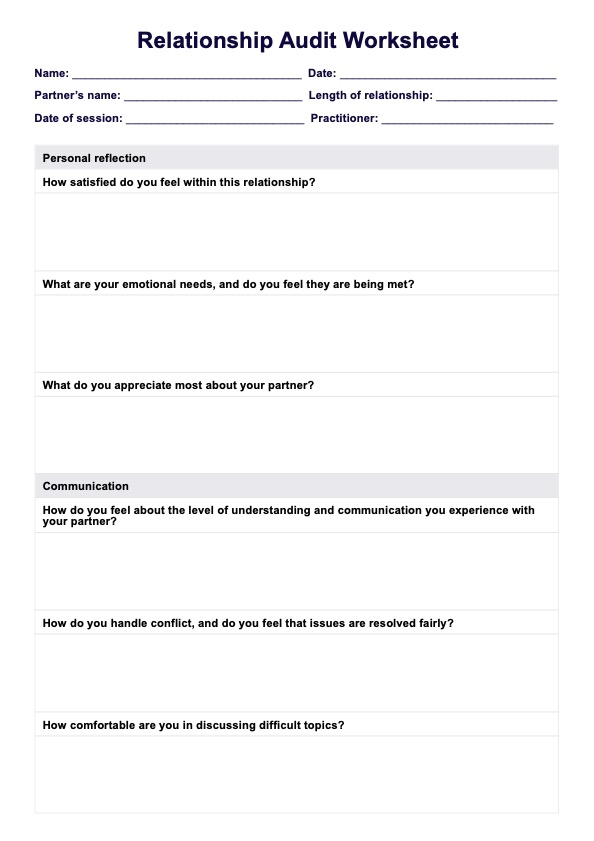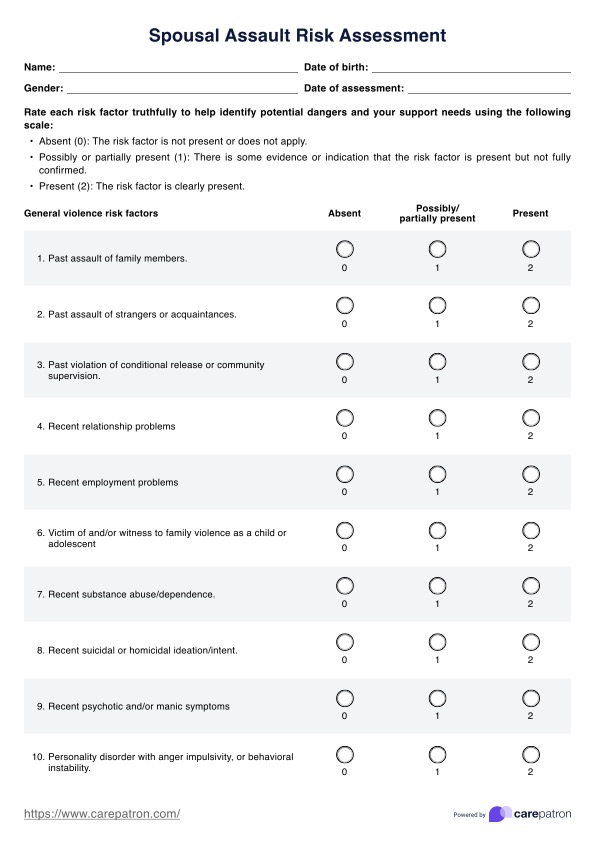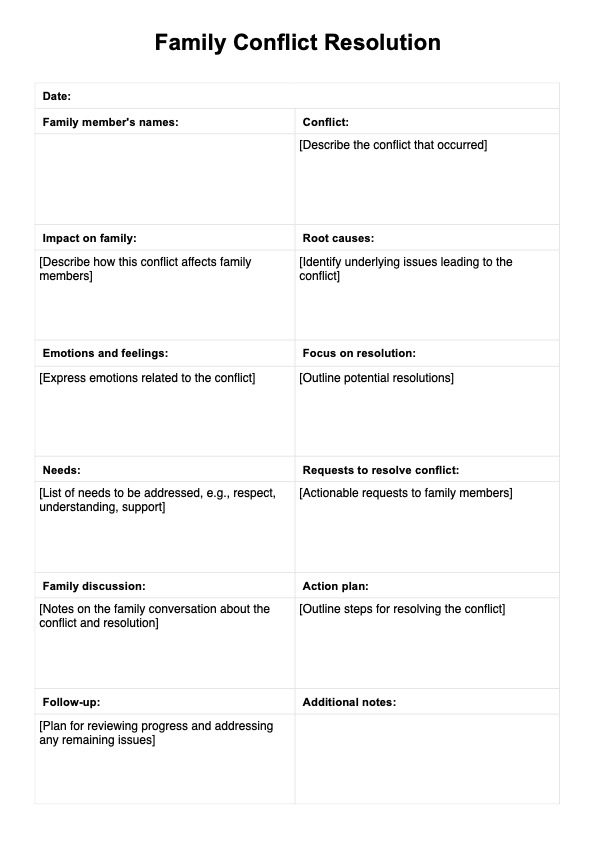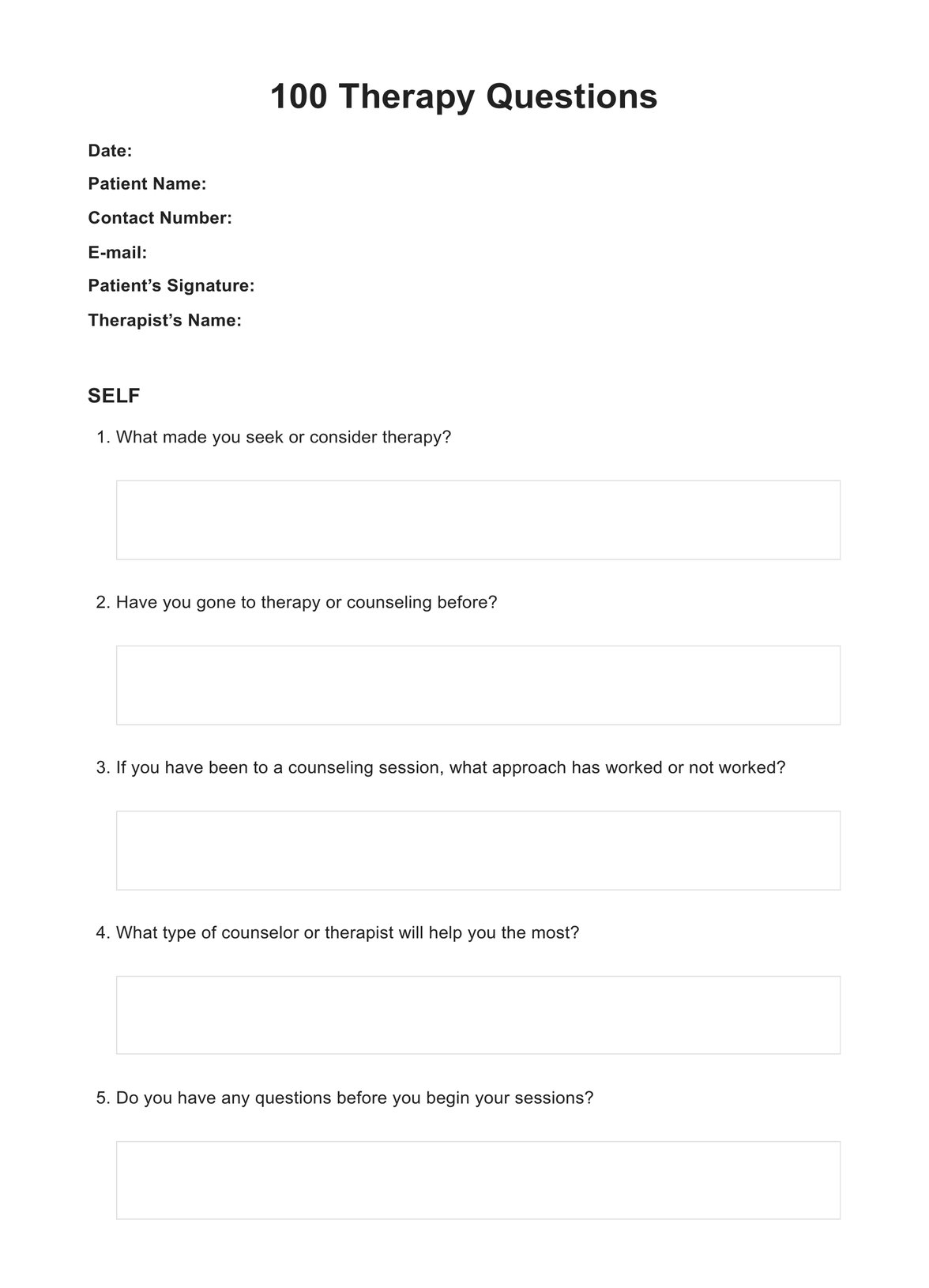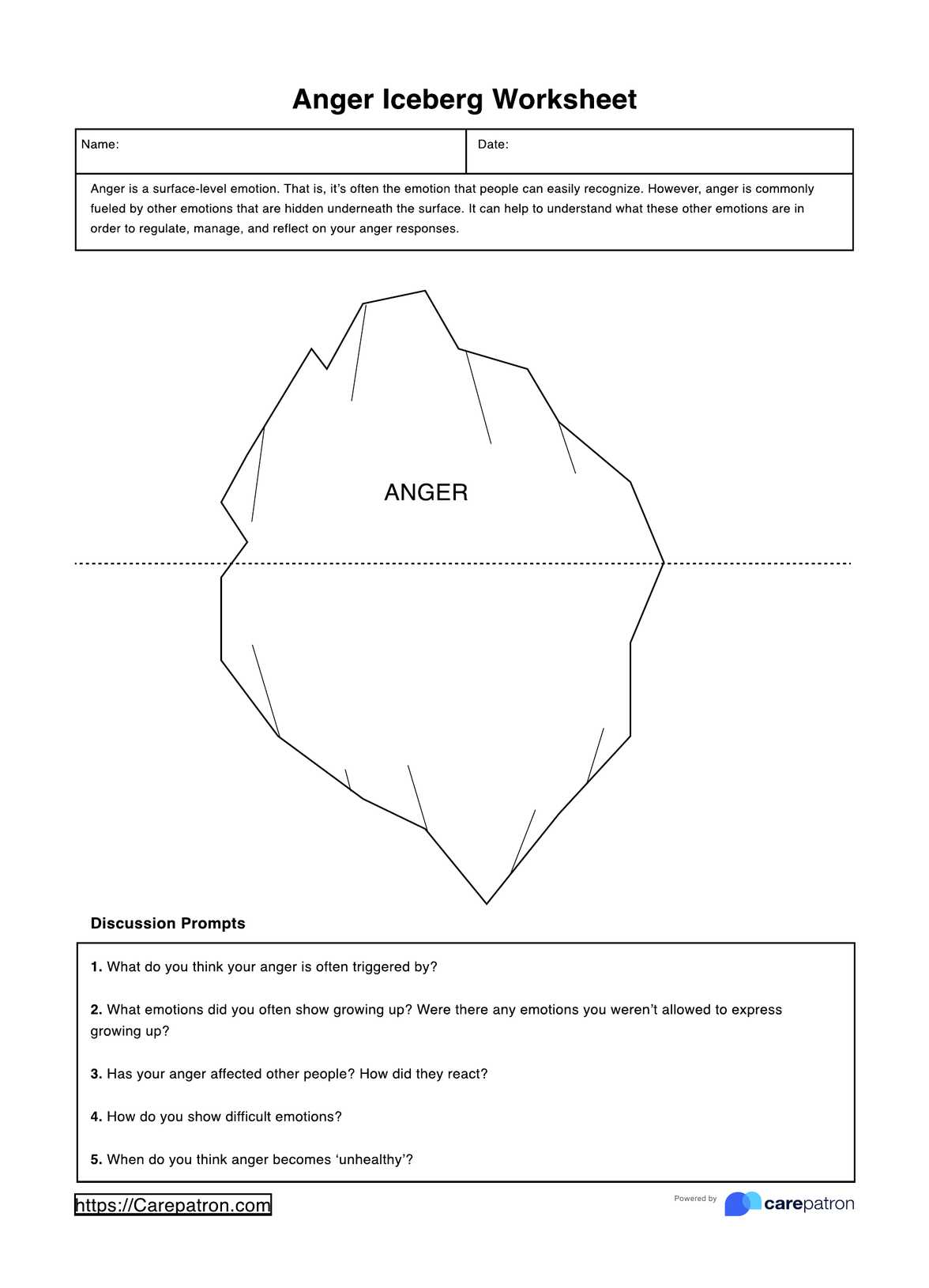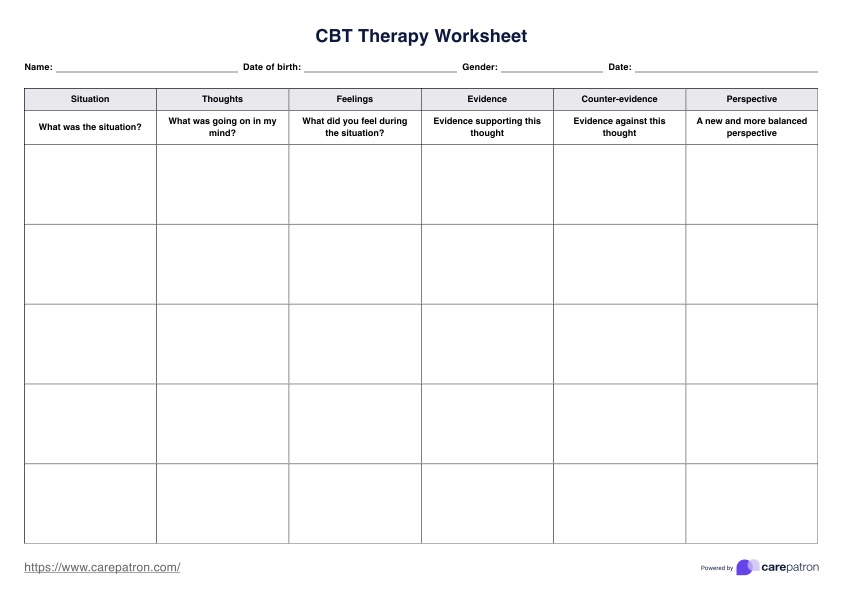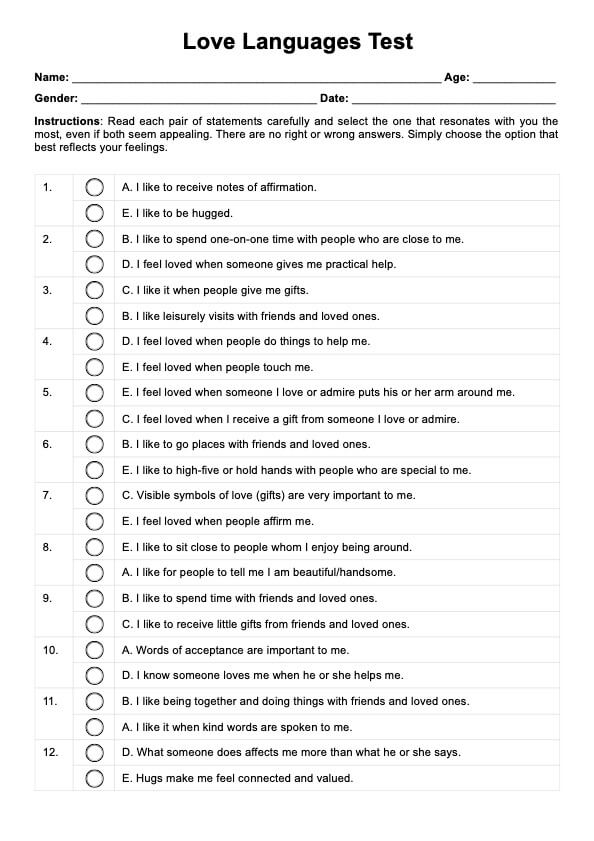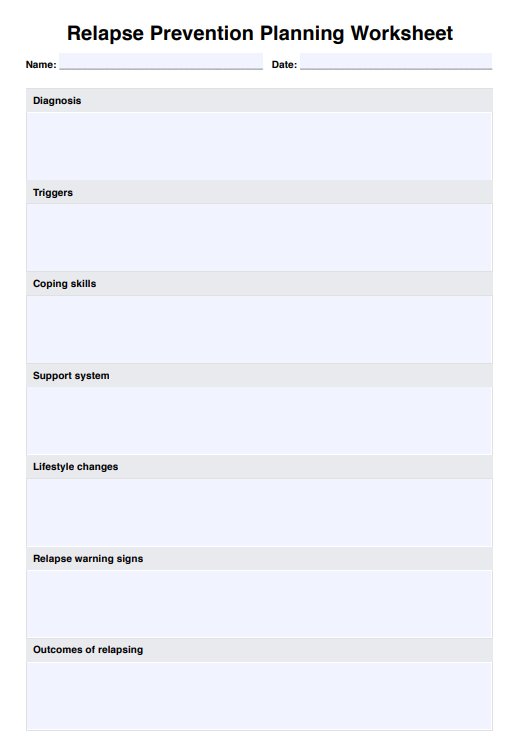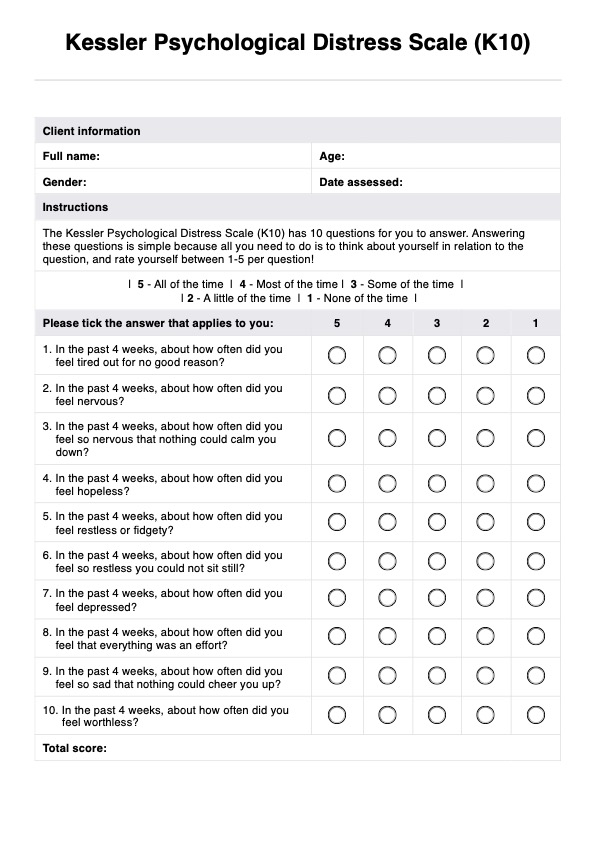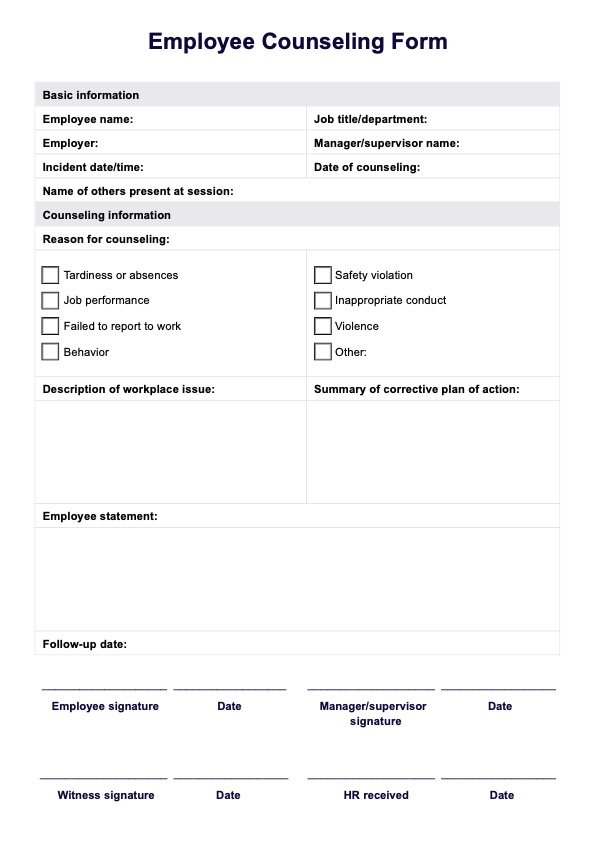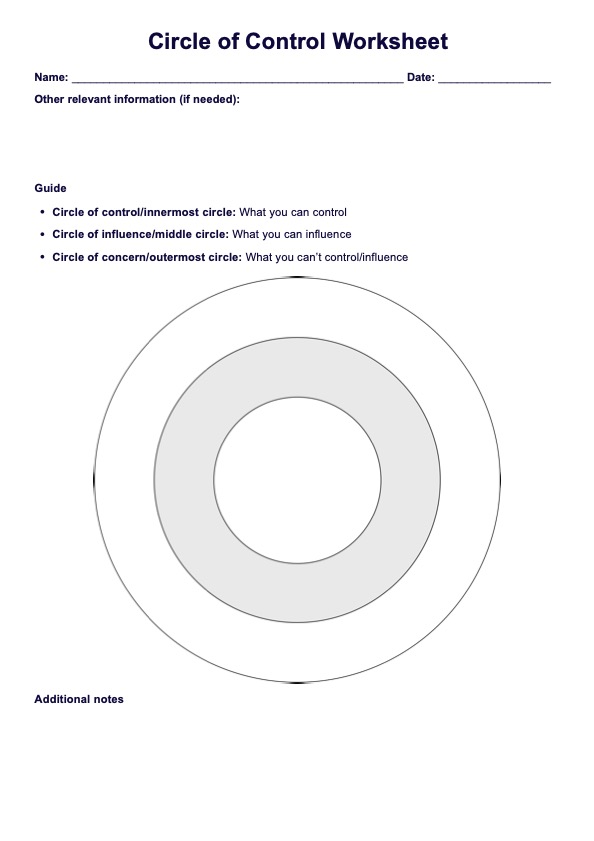Judgmental Mind ACT Worksheet
Enhance healthy relationships with this Judgmental Mind ACT Worksheet. Tackle judgmental thoughts and transform perspectives for better well-being.


What is Acceptance and Commitment Therapy?
Acceptance and Commitment Therapy
Acceptance and Commitment Therapy is a powerful therapeutic approach that healthcare practitioners can utilize to help individuals overcome various psychological challenges, including relationship problems. With its emphasis on mindfulness, acceptance, and values-driven action, ACT provide a valuable framework for addressing issues such as judgmental thoughts within relationships, as seen in the specific tool "Judgmental Mind ACT Worksheet."
In the context of relationship problems, ACT promotes psychological flexibility, which is the ability to adapt and respond effectively to life's challenges. When clients struggle with judgmental thoughts, especially within relationships, these thoughts can strain connections, erode empathy, and hinder effective communication. ACT provides a structured and compassionate way to address these issues.
The Judgmental Mind ACT Worksheet is tailored to assist clients and practitioners in this process. It encourages individuals to identify judgmental thoughts, explore their impact on emotions and behaviors, and examine their validity. By practicing self-compassion and considering alternate perspectives, clients can reframe their critical thoughts and align them with their core values.
The ACT approach helps clients cultivate empathy, improve emotional regulation, and enhance communication skills in relationships. Clients can create a more open and accepting environment by addressing judgmental thoughts, fostering healthier connections, and reducing conflicts. This tool is particularly effective as it guides clients to break free from negative patterns and cultivate a more mindful, accepting, and compassionate approach to their relationships.
As healthcare practitioners, incorporating ACT techniques, such as the "Judgmental Mind ACT Worksheet," can significantly enrich your toolkit for addressing relationship problems. By assisting clients in overcoming judgmental thinking, you empower them to build stronger, more resilient connections, ultimately contributing to their overall well-being and the health of their relationships.
Judgmental Mind ACT Worksheet Template
Judgmental Mind ACT Worksheet Example
How to use the Judgmental Mind ACT Worksheet:
The Judgmental Mind ACT Worksheet is a purposeful tool designed to guide individuals through the process of addressing and transforming judgmental thoughts, particularly within the context of relationships. This worksheet, grounded in the principles of Acceptance and Commitment Therapy (ACT), equips healthcare practitioners with a structured approach to assist clients in navigating the complex terrain of judgmental thinking and its impact on their well-being and relationships.
Here are the steps to using the Judgmental Mind ACT Worksheet:
1. Identifying Judgmental Thoughts:
Begin by encouraging the client to recall a recent situation where they experienced judgmental thoughts towards themselves or others within a relationship. They should jot down the specifics of the scenario and the ideas that arose.
2. Exploring Emotional Impact:
In this step, the client delves into the emotional responses triggered by their judgmental thoughts. How did these thoughts make them feel? Did it lead to anxiety, guilt, anger, or other emotions? This helps establish a clear connection between thoughts and feelings.
3. Validating or Challenging Thoughts:
Clients are guided to critically examine the validity of their judgmental thoughts. Are these thoughts based on factual information or assumptions? Is there evidence that contradicts these thoughts? This step promotes self-awareness and fosters a more balanced perspective.
4. Practicing Self-Compassion:
The worksheet encourages clients to envision themselves offering compassionate and supportive words to a friend facing a similar situation. By developing a kinder and more empathetic inner dialogue, clients can reframe their judgmental thoughts into self-compassionate ones.
5. Connecting with Values:
Here, clients reflect on how their judgmental thoughts align with their personal values. Are these thoughts in line with their core principles? By identifying the disconnection between critical thinking and values, clients become motivated for change.
6. Committing to Action:
In this step, clients pinpoint a specific, actionable step to challenge their judgmental thoughts and align with their values. This practical commitment promotes behavioral change and empowers clients to take ownership of their transformation.
7. Reflection and Progress Tracking:
Clients are prompted to reflect on their journey throughout the worksheet. This self-reflection solidifies insights gained and reinforces the commitment to change. It also prepares them for the next session, where progress can be tracked and discussed further.
When would you use this Judgmental Mind ACT Worksheet?
The Judgmental Mind ACT Worksheet serves as a potent tool in the arsenal of healthcare professionals for addressing judgmental thoughts, particularly within relationships. Its application can be strategically employed during various stages of therapeutic intervention to foster personal growth, self-awareness, and relationship enhancement.
Individual Therapy Sessions:
Healthcare practitioners, including therapists, psychologists, and counselors, can introduce the worksheet when clients express struggles with judgmental thoughts impacting their relationships. Whether dealing with self-criticism or projecting judgment onto others, this tool provides a structured framework for clients to untangle and reframe these patterns.
Couples Counseling:
In couples counseling, the Judgmental Mind ACT Worksheet can be instrumental in addressing communication challenges stemming from judgmental thinking. By engaging both partners, therapists can facilitate an open dialogue where each person explores their judgments, fostering empathy and understanding between them.
Preventive and Wellness Care:
Healthcare professionals in wellness-focused settings can use the worksheet to equip individuals with skills to manage judgmental thoughts before they escalate into relationship conflicts. Proactively addressing these thoughts contributes to emotional well-being and strengthens interpersonal dynamics.
Group Workshops:
The worksheet can be integrated into group therapy sessions or workshops centered around self-improvement and interpersonal skills. In a supportive group environment, participants can collectively work through their judgmental thoughts, sharing insights and strategies for fostering non-judgmental awareness.
Employee Assistance Programs:
Organizations offering employee assistance programs can utilize the worksheet to address workplace-related judgmental thinking. The tool can help mitigate conflicts and improve team dynamics by promoting a culture of empathy and understanding.
The Judgmental Mind ACT Worksheet is valuable for healthcare professionals to address judgmental thoughts in relationships. Its versatility allows tailored interventions, promoting psychological flexibility, compassion, and healthier interactions. By strategic utilization, healthcare professionals can guide clients towards authentic, harmonious relationships, enhancing emotional well-being and personal growth.
What are the benefits of using this Judgmental Mind ACT Worksheet?
Structured Self-Exploration
The free Judgmental Mind ACT Worksheet offers a systematic approach to delve into judgmental thoughts, providing individuals with a clear structure for self-exploration. This guided process helps clients better understand the origins and impact of their critical tendencies.
Enhanced Self-Awareness
Users gain deeper insights into their emotional responses, behavior patterns, and underlying beliefs through the worksheet's thought-provoking questions. This heightened self-awareness lays the foundation for transformative change.
Mindful Reflection
The worksheet encourages individuals to pause, reflect, and challenge their automatic judgmental thoughts. Fostering mindfulness empowers users to respond to situations with greater awareness and intentionality.
Promotion of Compassion
By guiding clients through self-compassionate exercises, the worksheet helps individuals develop a kinder and more understanding relationship with themselves. This shift in perspective can lead to reduced self-criticism and improved self-esteem.
Alignment with Values
The worksheet prompts users to connect their judgmental thoughts with their core values. This alignment aids in recognizing the discrepancies between their thoughts and aspirations, motivating them to make positive changes.
Action-Oriented Approach
With its actionable steps, the worksheet propels users towards practical change. Individuals actively challenge their judgmental tendencies and build healthier thought patterns by committing to specific actions.
The Judgmental Mind ACT Worksheet draws upon the rich theoretical foundations of Acceptance and Commitment Therapy (ACT) and is informed by empirical research on mindfulness, cognitive behavioral therapy, and positive psychology. Developed as an innovative tool to address judgmental thoughts within relationships, this resource has gained recognition for its effectiveness in enhancing psychological flexibility and interpersonal well-being.
ACT, developed by Hayes et al. (2011), emphasizes mindfulness, acceptance, and value-driven actions to promote mental health. Its principles align with the Judgmental Mind ACT Worksheet's focus on self-awareness, self-compassion, and values-driven behavior.
The research conducted by Gloster et al. (2018) underscores the significance of mindfulness-based interventions in reducing judgmental tendencies and improving emotional regulation. This research lends support to the worksheet's core purpose of cultivating mindfulness as a means to counteract judgmental thinking.
Furthermore, studies like Davis et al. (2020) demonstrate the efficacy of ACT in fostering better interpersonal relationships by reducing cognitive rigidity and enhancing empathy. This resonates with the goals of the worksheet in transforming judgmental thoughts to facilitate healthier interactions.
Empirical evidence has shown that integrating mindfulness and acceptance techniques into therapy can lead to meaningful outcomes (Forman et al., 2016). The Judgmental Mind ACT Worksheet aligns with this evidence by offering a structured approach to help individuals break free from judgmental patterns and cultivate healthier thought processes.
Commonly asked questions
The Judgmental Mind ACT Worksheet is a therapeutic tool based on Acceptance and Commitment Therapy (ACT). It's designed to guide individuals through addressing and transforming judgmental thoughts, particularly within relationships. This worksheet offers a structured approach to promote self-awareness, empathy, and psychological flexibility.
This worksheet benefits a wide range of individuals, including clients in therapy, couples seeking relationship improvement, individuals in self-help settings, and anyone struggling with judgmental thoughts impacting their well-being and relationships.
Absolutely. Mental health professionals, therapists, counselors, and psychologists can integrate this worksheet into their practice. It aligns well with Acceptance and Commitment Therapy principles and can be utilized in individual therapy sessions, couples counseling, group workshops, and wellness programs.


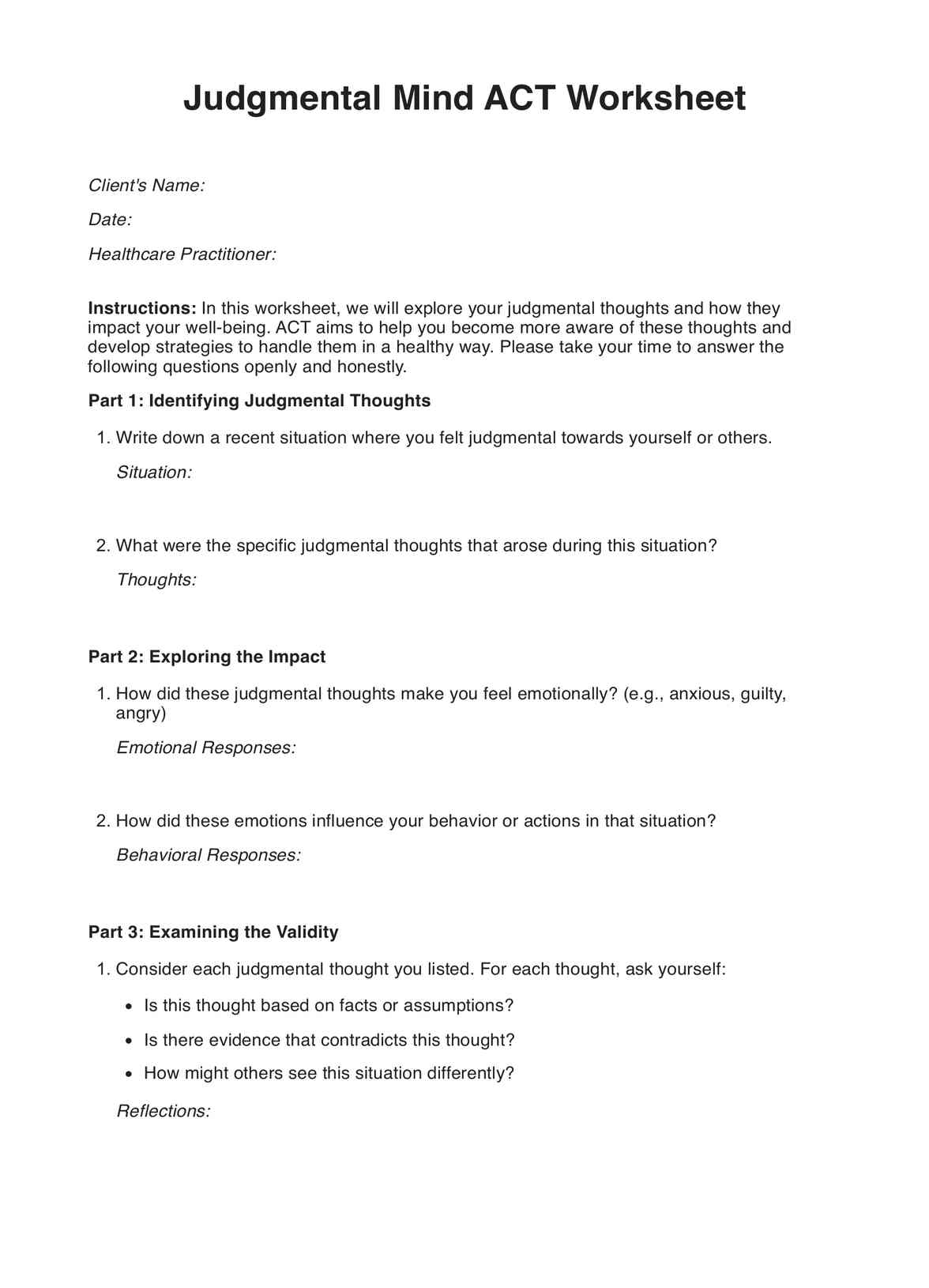
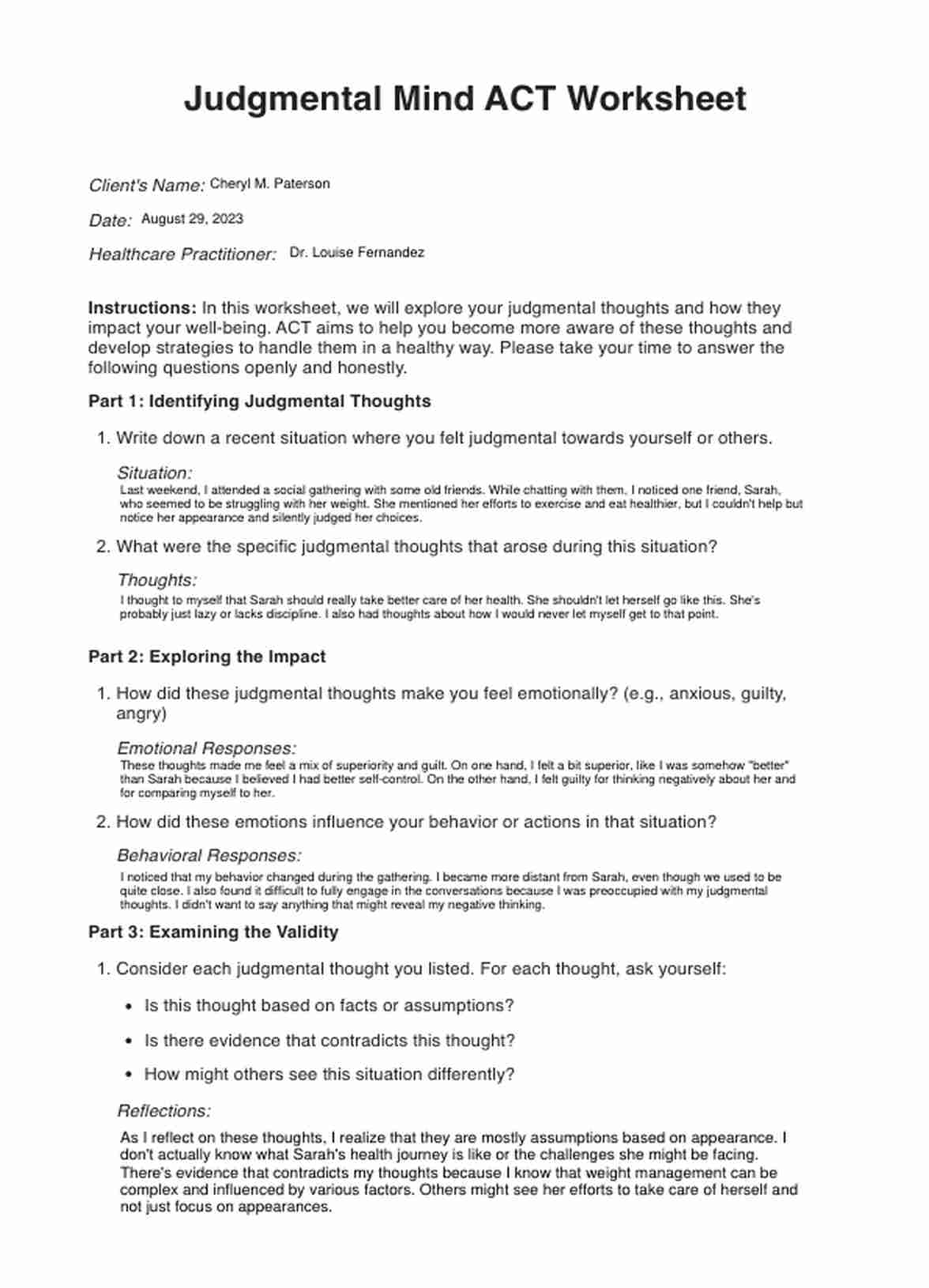














-template.jpg)


